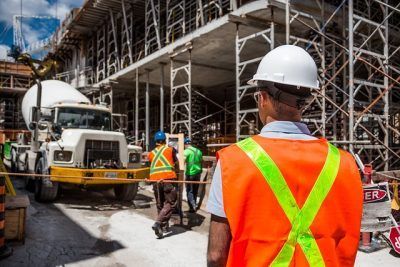If you are planning on starting a construction project, you may need to hire the services of a general contractor, who is responsible for the daily oversight of the construction site. You can continue reading to learn more about general contractors’ job descriptions, responsibilities, and qualifications.
What Is a General Contractor?
General contractors are responsible for supervising a construction project and managing daily activities on the site. They are responsible for ensuring the construction progress meets the scheduled timeline and budget. General contractors coordinate the entire construction team and act as an intermediary between the project owner and other parties involved in the construction project.
Responsibilities of a General Contractor
Planning the Project
When the pre-construction phase starts, the McMinnville general contractor creates a detailed project timeline and schedule. This helps organize a plan for each phase of the construction project. The planning phase could also include identifying what resources would be used for the construction project and how they would impact the total budget. General contractors are responsible for forecasting any disruption to the construction or unexpected project costs; by doing this, they can create strategies to mitigate such risks.
Hiring Subcontractors
Another role of the general contractor is to hire any required manpower for project completion. For example, general contractors can hire subcontractors to expedite the process. Each subcontractor takes on a specific task. For instance, if there is woodwork to be carried out in order to complete the project, then the general contractor can hire a subcontractor who has the necessary skills and experience in carpentry. When subcontractors are hired, the general contractor helps ensure the subcontractors have all the required equipment or anything they need to complete their job.
Managing Equipment
Construction, whether big or small, requires materials and equipment. A general contractor ensures that all materials and equipment arrive on-site by contacting suppliers and vendors. They are also responsible for checking the construction materials’ quality. This helps keep the project within the scope of the budget.
Carrying Out Inspections
A general contractor reviews and carries out regular construction inspections to eliminate any errors in the project that could cost time and money. Doing this helps the general contractor ensure that the construction team is adhering to the regulations and there are no potential risks of a hazard occurring on the construction site.
Attaining Permits
Before the project is initiated, a general contractor can help obtain all necessary permits and licenses required for construction. They also ensure that all of the area’s building codes are followed. For example, South Florida general contractors would be well-versed in local building codes for cities in Florida.
Health and Safety Requirements
Another duty of the general contractor is to ensure that all team members wear protective gear, especially those working with heavy equipment. They also conduct effective waste management methods at the construction site for an eco-friendly construction project.
License Requirements & Qualifications
The licensing requirements of general contractors depend on the state. Each state requires general contractors to carry a general contractor’s license by demonstrating industry experience, general liability insurance, and proof of passing a trade exam. Utah commercial contractors must meet the licensing requirements for general contractors in their state, which include
demonstrating industry experience, obtaining general liability insurance, and passing a trade exam.
While there may not be any degree requirements for them, many people and businesses prefer hiring general contractors with a degree in relevant subjects, including construction management, construction science, or surveying. General contractors can also be required by the state to carry specialty licenses if they have a specific skill, including working with electrical systems, plumbing, HVAC installation, and well-drilling.












